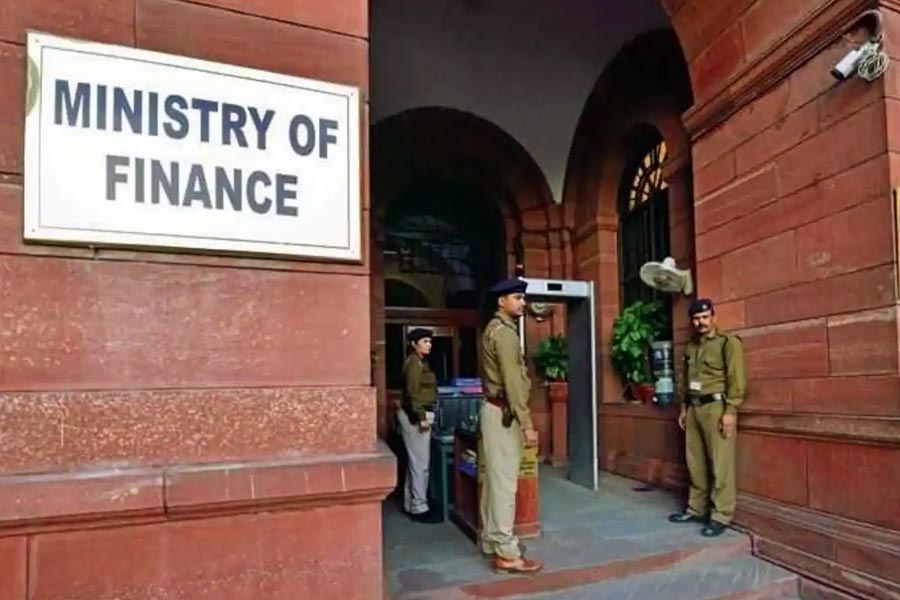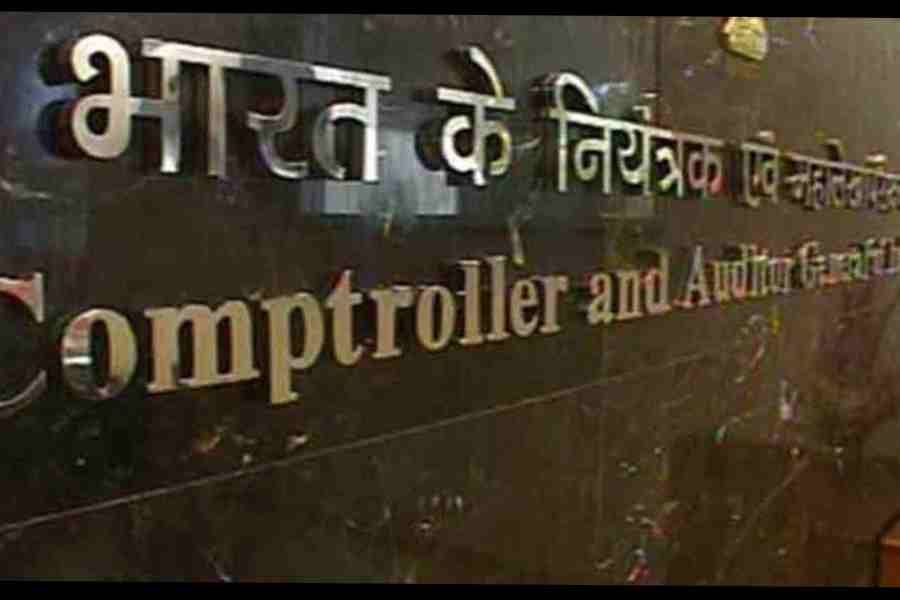The finance ministry's response to a news report published in The Telegraph that was based on a CAG report
The piece “Central ‘cash diversion’ to unknown repositories”, published in The Telegraph edition dated September 18, 2023, misinterprets Chapter 3 of the CAG’s report No 21 of 2023 and makes fictional claims about the Union government’s accounting practices.
Government accounting is essentially an Executive function. In this context, CAG’s observations on quality of accounting and financial reporting practices, as in the said Report, often triggers systemic and procedural improvements.
There are also a few issues that may tend to persist
due to principles-based disagreement between the Government and the CAG, pending discussion on approaches to be adopted.
Chapter 3 of the CAG’s report No 21 of 2023 titled ‘Quality of Accounts and Financial Reporting Practices’ of the CAG’s report needs to be seen in this light. It discusses the presentation of financial information with reference to issues of completeness, transparency, accuracy and disclosures in the Union Government Finance Accounts (UGFA) for the FY 2021-22.
Beyond this, there is nothing in the said Chapter that could, even remotely in an unbiased reportage, invite the use of epithets — “something rotten”, or “mess”, or “smokescreen”, or “secret repositories of public money”. And, about the histrionic claims that “the government refuses to reveal” or “it has been stonewalled every single time”, the CAG’s report itself acknowledges that replies were received.
The piece raises the following ‘concerns’ with respect to observations of the CAG in report no 21 of 2023 on Union Government Accounts:
Claim: Undervaluation of external debt.
Government’s response:
The Medium-Term Fiscal Policy Statement prepared as per provisions of the FRBM Act, 2003, and laid before Parliament along with the Union Budget every year, requires that Central Government debt as per cent of GDP be disclosed as one of the fiscal indicators. In this Statement, external debt is calculated using current exchange rate as on 31st March of the Financial Year. This is in accordance with the definition of central government debt provided in the FRBM Act.
However, Government accounts are prepared on cash basis and, therefore, external debt is reported at historical cost. The current value of liabilities of Government on account of external debt is also disclosed through footnotes in the Accounts. As a result, both the accounting requirement and FRBM requirements are being fully disclosed in a transparent manner.
Claim: Understatement of liabilities for small savings and provident fund.
Government’s response:
As stated in the Summary of Debt Position of Union Government, the total liability of Central Government on account of small savings and PF etc., (excluding NSSF investment in special securities of Central Government which is accounted in the internal debt) is Rs 12,24,452 crore.
Out of this Rs 6,01,446 crore is shown in the summary statement and balance amount of Rs 6,23,006 crore is shown in the footnote as amount excluded from summary statement amount, as this liability is on account of investments in state government special securities, investments in other public agencies, POLIF fund managed by private fund managers and accumulated deficit of NSSF.
While the CAG’s advice suggests better depiction, the authors of the piece have calculated a difference between amount shown in summary statement (Rs 6,01,446 crore) and amount excluded as explained above Rs 6,23,006 crore).
The interpretation by the authors that there is an understatement of liabilities is therefore not correct.
Claim: Public funds parked in current accounts of banks.
Government response:
These current accounts were maintained by D/o Space for making customs duty payment as per requirements of ICEGATE portal of CBIC. Now that Electronic Cash Ledger system has been introduced in ICEGATE, Department of Space has already closed all but one current account, which will be closed shortly.
Claim: Levies & Cesses not used for intended purposes.
Government response:
It is wrong to say that levies and cesses are not used for the purposes for which they were levied. The accounting procedure adopted for collection and utilization of cess proceeds are governed by the underlying provision of the respective Acts.
Section 9C of Indian Telegraph (Amendment) Act, 2003 provides that the Central Government may, after due appropriation made by Parliament credit such sums of money as that Government may consider necessary in the Fund. Thus, transfers to USOF are made in line with the statutory provisions.
The Union Government has already spent more than the actual proceeds of health and education cess on identified schemes with due appropriation of Parliament.
Claim: Stack of 258 footnotes appended to accounts.
Government response:
There is no restriction on the number of notes/ footnotes, which are inserted to improve readability and transparency. The number of footnotes is reasonable for an entity as mammoth as Government of India with an expenditure of about Rs. 38 lakh crore in FY 2021-22. However, CAG’s advice to use “Notes” instead of “Footnotes” is being considered.
Claim: Mismatch between the government’s statement on equity holding in public sector units and the information provided in the annual reports and financial statements of these companies.
Government response:
The major reasons for discrepancies are non-depiction of bonus shares and splitting of shares. The information is being reconciled.
Claim: Cases of adverse balances.
Government response:
Adverse balances do not necessarily arise due to excess expenditure against authorised heads. They mainly arise due to non-transfer of balances across ministries or non-settlement of claims by other departments/State governments, or misclassifications of balances. These are being closely monitored.











